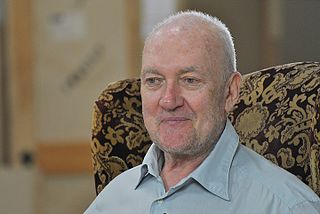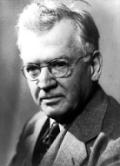A Quote by Erich Fromm
For [Sigmund ] Freud, the manifest dream, that is that which we remember after waking,is like a code message, that can be interpreted, provided the right key is avail-able, for example the method of free association.
Related Quotes
It's an essay that Sigmund Freud wrote about E.T.A. Hoffman's short story called "The Sandman" where someone mistakes an inanimate object for a living, breathing human being. And one of the things that Sigmund Freud really felt was that in modern life people assign qualities to objects around them that may not exist there whatsoever.
[Sigmund Freud] makes the interpretation of dreams extremely simple: it deals in substance with discovering what unconscious desires, distorted but recognizable, are hid-den in the dream. Instead, for me the dream is a mixture of thoughts and sensations that man has when he is asleep, a mental state relatively protected from the constant noise that society makes.
Freud believed that our dreams sometimes recapitulate a speech, a comment we've heard or something that we've read. I always had compositions in my dreams. They would be a joke, a piece of a novel, a witticism or a piece of dialogue from a play, and I would dream them. I would actually express them line by line in the dream. Sometimes after waking up I would remember a snatch or two and write them down. There's something in me that just wants to create dialogue.
I first read Sigmund Freud's 'Beyond the Pleasure Principle' as a young girl, and it helped me to understand that there are thousands of possible ways to interpret our experience, that everything has a meaning, and that interpretation is the key to reality. This was the first step to becoming a writer.
How do we know, then, when a code's been cracked?when we are right?when do we know if we have even received a message? Why, naturally, when, upon one set of substitutions, sense emerges like the outline under a rubbing; when a single tentative construal leads to several; when all the sullen letters of the code cry TEAM! after YEA! has been, by several hands, uncovered.

































